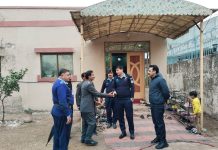By Adnan Rafique
ISLAMABAD: Chairman of Judicial Committee of Pakistan and Chief Justice of Pakistan (CJP) Justice Umar Ata Bandial Saturday said that now there was only the issue of implementation of law regarding the fundamental rights of women in the country as the concern legislation had already been introduced.
He was addressing the concluding session on the second day of the two-day national conference on “Resilient Pakistan: Calibrating Population and Resource ” organized with the collaboration of the Judicial Commission of Pakistan and the Ministry of National Health Services.
Chief Justice Umar Ata Bandial lauded the legislation introduced in the provinces of Khyber Pakhtunkhwa and Sindh and said that we have laws as well as policies, and the first step we should take is to approach the respective governments with reference to the suggestions and opinions presented in this conference and ensure their implementation.
The CJP said that if the law and policies are not implemented then high courts could be approached. The courts cannot make laws but it has the power to issue instructions to ensure the implementation of laws and policies,
he said. CJP underlines importance to implement laws regarding women rights
He said that the experts benefited us with their ideas in the conference, which is a commendable act.
He also elcomed the public participation in the conference, including officials of the judiciary and bar councils.
Justice Umar Ata Bandial further said that we should support women in our society in their basic right to make decisions regarding empowerment, education, and employment. He said that there is a need for collective decisions in the society and the family and women’s participation in the decisions is also necessary for good decisions in the family.
The CJP said that the best destination for a human being is its role in welfare. Earlier, on the second day of the conference, various sessions were held in which experts from various departments including judges expressed their views regarding calibrating population and resources, and women empowerment. On the second day of the conference, judges of the Supreme Court, Azad Kashmir, Gilgit-Baltistan and other High Courts, District Judiciary officials, Bar Council officials, lawyers’ community and people from different walks of life participated in large numbers.






